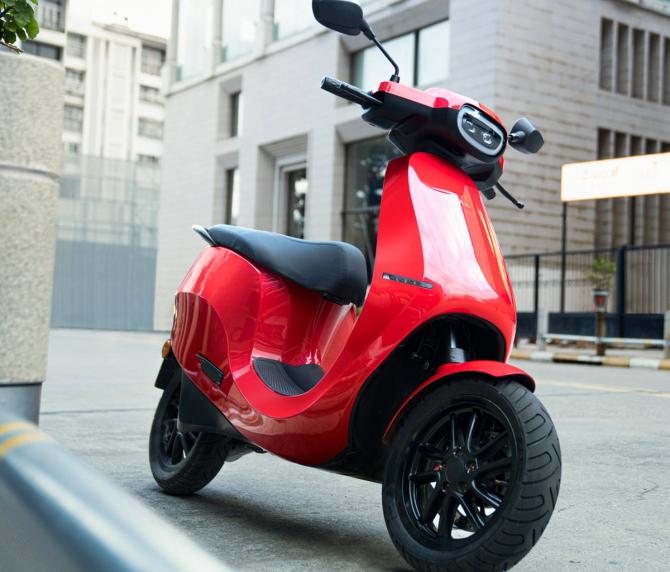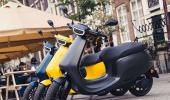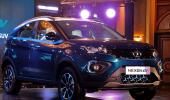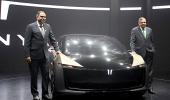'We are the most capital efficient business out there in terms of our manufacturing efficiency, economies of scale through our investment in research and development, technology and innovations, which lead us to improve our cost structures,' Anshul Khandelwal, chief marketing and revenue officer, Ola, said.

Electric two-wheeler company Ola Electric is making profit on unit sales on the back of manufacturing efficiency and economies of scale, said its chief marketing and revenue officer.
Though the company declined to share the revenue numbers, it said it is not making a loss.
“We are the most capital efficient business out there in terms of our manufacturing efficiency, economies of scale through our investment in research and development, technology and innovations, which lead us to improve our cost structures,” Anshul Khandelwal, chief marketing and revenue officer, Ola, told Business Standard in an interview.
In December, when the overall sales for the electric two-wheeler (E2W) industry declined over 19 per cent, Ola increased its sales to 17,330 units from 16.364 units sold in November, according to the Vahan data.
While talking about the revenue, Khandelwal said, as Ola is not a public company, it cannot share the revenue numbers. “But through volume numbers and unit sales one can see, we are not making a loss.”
Earlier, in an interview with this paper in December, Bhavish Aggarwal, founder and chief executive officer of Ola had said the company was aiming to become profitable in 2023.
Ola Electric currently offers two electric scooters -- Ola S1 Pro and Ola S1, while a lower-priced version, Ola S1 Air, is expected to hit the roads by April next year.
Priced at Rs 84,999, the S1 Air is a competitive EV product form Ola, which will compete with the leading internal combustion engine incumbents of the industry.
Currently, 85 per cent of the scooter market is in this category.
Ola claims that it not only focused on increasing its market share in the electric vehicle (EV) space it wants to increase the penetration in overall ICE space for electric vehicles.
“In March or April, our new product S1 Air is also going to come. With that product we will, by far, become the most successful single product brand in the country,” Khandelwal said.
By March 2023, Ola plans to increase the number of experience centres to more than 200, currently it has 100 plus centres across the country.
On the question of how many people who come to Ola’s experience centre end up buying the products, Khandelwal said, upwards of 50 per cent. “It has one of the industry’s best conversion rates,” he added.
While talking about the company’s strategy behind Ola success, Khandelwal said, quality of product, consumer centric marketing sales initiatives, and community of proponents for Ola brand have helped the electric manufacturer achieve the target.
The two-wheeler manufacturer is also planning to launch electric small commercial vehicles, bikes and cars in the coming years.
Khandelwal, while highlighting that the Ola core competency is in manufacturing great quality products, said, “I do not know why it should be a problem. It is about building a great quality product. That is what we have been doing with the scooter segment also.”
“Everything is part of our portfolio and we have keen interest in them. We will be launching them in the coming years,” Khandelwal added.
Feature Presentation: Rajesh Alva/Rediff.com












 © 2025
© 2025